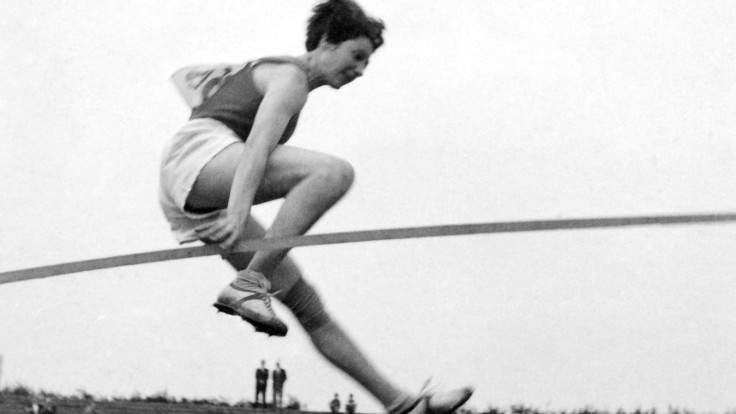Gretel Bergmann: German Jewish high jumper 'deleted from record books' by Hitler dies at 103
Bergmann was banned from the 1936 'Hitler Olympics' - and replaced by a male Nazi who claimed to be female.

Gretel Bergmann, a German high jumper who was banned from competing in the 1936 Berlin Olympic Games because she was Jewish, has died aged 103.
Bergmann, who later changed her name to Margaret Lambert after she emigrated to the US in 1937, died at her home in Queens, her niece Doris Bergman confirmed to the New York Times.
The world-class high jumper, who had already won the 1934 British High Hump Championships, achieved a world record 5ft 3in (1.60 metres) jump during national trials in Stuttgart just prior to the so-called 'Nazi Olympics' in Berlin.
Despite this, she was not picked to represent her country in the Games and even had her record erased from the history books.
She said in an interview with The Independent in 2012: "I wanted to show the world what a Jew could do, but I knew very well the Nazis would never let me compete.
"I watched the Games and hated every minute of it. Nobody knew I existed."
In an ironic twist, the Hungarian who eventually won the Gold at the high-jump in 1936 was also Jewish, while the highest placed German athlete – fourth placed Dora Ratjen – turned out to be a man.
It wasn't until many decades after that her achievements in sports were recognised, including having a stadium in her hometown of Laupheim named after her in 1999. She was also entered into the US National Jewish Sports Hall of Fame and Israel's Jewish Hall of Fame.
Speaking of her decision to attend the naming ceremony of the stadium in Laupheim despite previously promising never to set foot in Germany again, she said: "I was told that they were naming the facilities for me so that when young people ask, 'Who was Gretel Bergmann?' they will be told my story, and the story of those times."
In 2009, when Bergmann was aged 95, Germany's track and field association restored her Stuttgart jump to the record books as an "act of justice and a symbolic gesture", while also admitting it could "in no way make up" for the past.
In September of the same year, a movie based on her life entitled Berlin 36 was released in German cinemas.
She was also honoured guest of the German Olympic committee at the opening ceremony of the 1996 Atlanta Games.
© Copyright IBTimes 2025. All rights reserved.






















